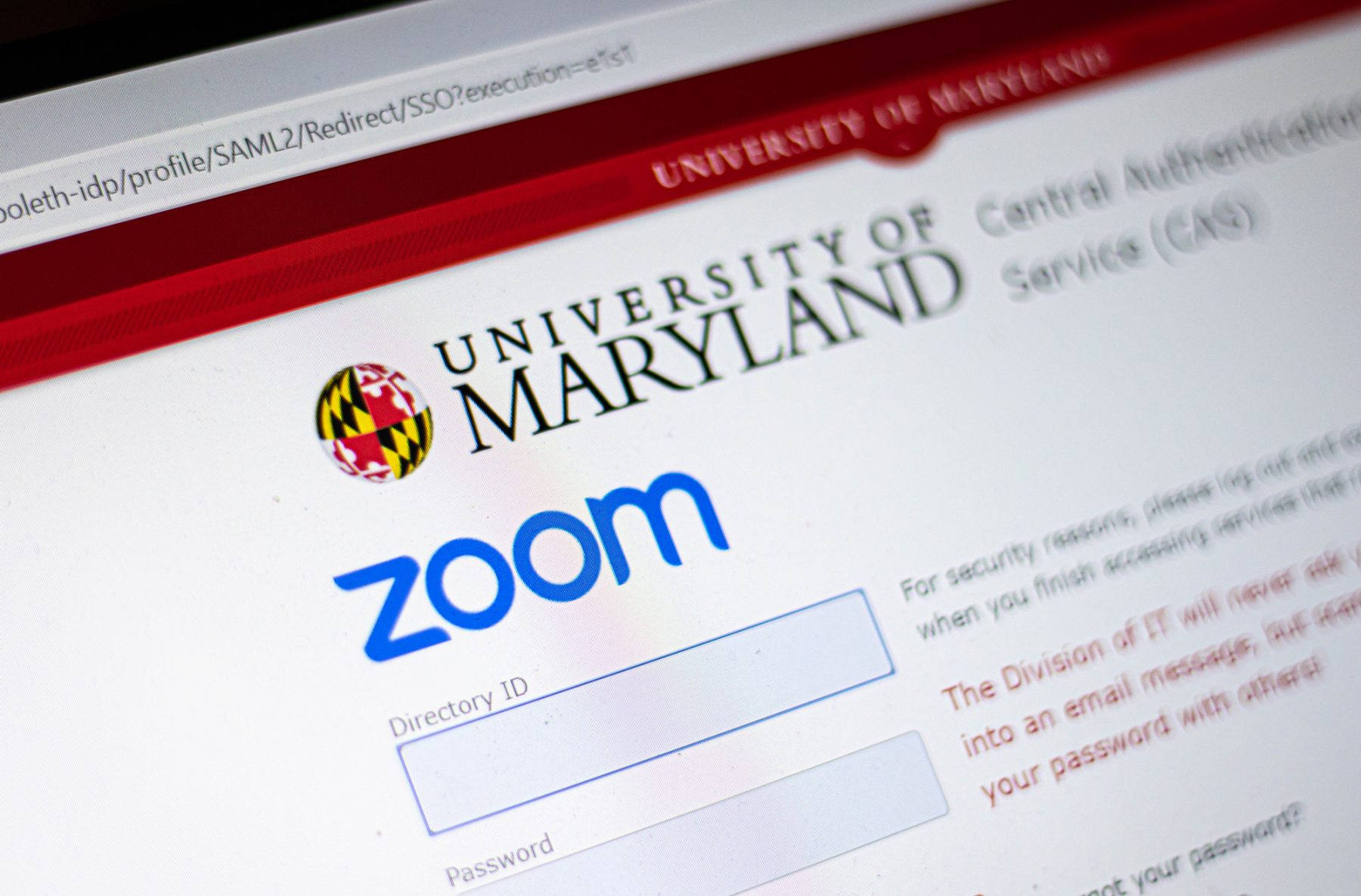When campus radio station WMUC joined the University of Maryland’s virtual First Look Fair last week, it had to face a new challenge of operating online: Zoombombing.
First, two individuals disrupted the call. Both used fake British accents, and one said a racist slur, WMUC staff said.
After the person said the slur, both Zoombombers were kicked out of the call. But the Zoombombing didn’t end there.
Another individual joined the call, and though they didn’t say anything offensive, they played a strange video and clearly were not a student interested in the club, said Madeline Redding, the station’s program director.
And even after Sabrina Li, the group’s social media director, sent out a message on social media addressing the disruptions, they continued. Some individuals were sitting in silence on the call when someone launched into curses and slurs.
The experience left Li “frazzled,” she said.
“Anything is better than going into some random person’s Zoom call and cursing them out,” Li said.
The university is currently investigating 19 reported incidents of Zoombombings — when a Zoom call is intentionally disrupted by one or multiple people — according to information provided by a university spokesperson. The university has also introduced new security measures that will only allow university-authenticated accounts to join university Zoom calls, according to a campuswide email sent out last week.
[Amid coronavirus safety guidelines, UMD clubs will look different this fall]
Zoombombings of events associated with this university have occurred as early as April, when racist language disrupted a Nyumburu Cultural Center virtual gathering. Earlier this month, homophobic and racial slurs delayed a College Park town hall.
In Rachel Lipman’s online Chinese history class, an individual joined the call pretending to be a legitimate participant in the class, she said. The lecture continued as usual until the individual began smoking marijuana on camera, playing pornographic noises and writing on the lecturer’s PowerPoint, Lipman said.
Lipman felt bad for her lecturer, who didn’t seem to know how to handle the situation and ended the class early, she said. And, she was frustrated, too, because the class couldn’t cover the content of the lecture.
“I couldn’t understand the immaturity of whoever was doing that,” the sophomore government and politics major said. “In the moment, it was definitely just shock.”
The university’s enhanced security measures are designed to keep non-members of the university community out of Zoom calls and to have greater accountability for members of the community that may be participating in Zoombombings, Jeff Hollingsworth, vice president for information technology, wrote in a statement.
[Some UMD students say blue light glasses help prevent strain from virtual classes]
However, some students would like to see improvements with the new system.
While Redding recognizes the need for the added security, she wishes there was more communication about the changes, citing that she and many others now don’t know how to get into their classes, she said. She also doesn’t know how to report the Zoombombing.
The Zoombombings were just a “another in a long line of bumps on the road,” said Redding, who has made WMUC’s operation largely virtual for the fall semester.
Zoombombings should be reported to nethics@umd.edu, and if the incident includes hateful language, it should also be reported to Bias Incident Support Services through a Bias Incident Report Form, according to a university spokesperson.
Meanwhile, Lipman would like to see even more security for classes, such as only allowing students on the roster into the class, she said.
“We can do a little more, especially when there’s so many professors that can’t defend themselves online when these things are happening,” Lipman said.



